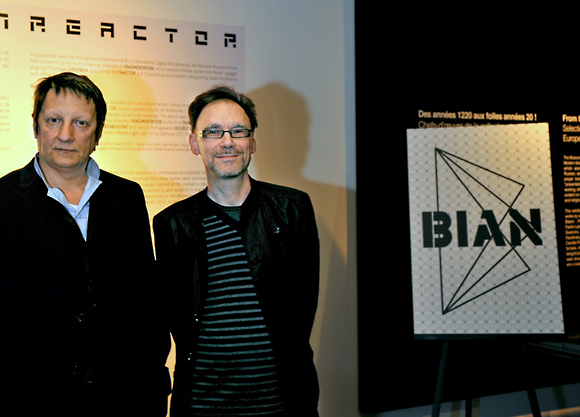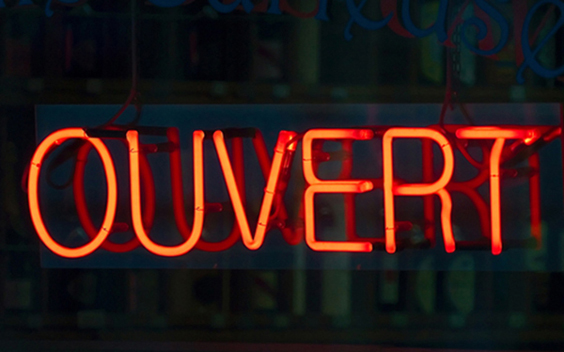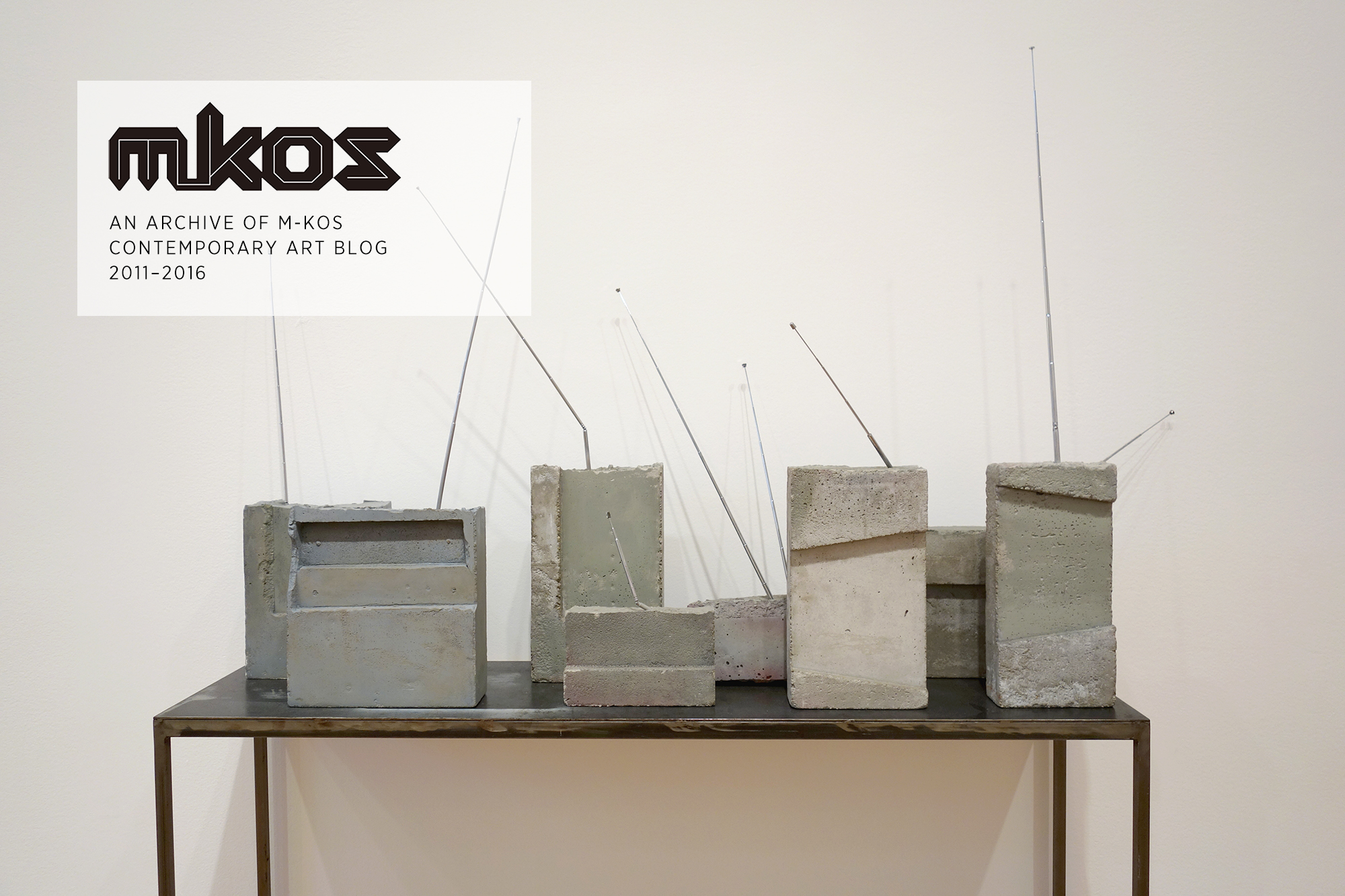
Alain Thibault (Right) with artist Robert Lepage at the opening of BIAN. Courtesy of BIAN 2012. Photo: Conception
Alain Thibault is the founder and artistic director of the International Digital Arts Biennale (BIAN), inaugurating its first edition in April 2012. Unlike his sister electronic music event Elektra, BIAN focuses on digital forms of contemporary art, hosted in numerous museums, art galleries, artist-run centres and other venues throughout the city of Montreal. BIAN invited artists from Germany, Japan, France, Switzerland, Austria, The Netherlands, Turkey, USA as well as Quebec and Canada, including renowned names such as Carsten Nicolai and Ryoji Ikeda. Thibault talked to M-KOS about his motivation to take digital arts to the next level, while he enjoys the taste of success of the first edition of his biennale.
M-KOS [MKOS]: As founder for the International Digital Arts Biennale (BIAN), how would you describe your motivation to do such a festival?
Alain Thibault [AT]: In fact I started out with Elektra in 1999, which is also an international festival of digital arts. The focus with Elektra was mainly about concerts and performances, but still with a mandate of blending experimental electronic music with visuals. This could be audiovisual performance, robotic performance, but there was always a central axis on experimental electronic music combined with a visual element. So that began in ’99, and gradually we evolved out of Usine C which is our main headquarters and quite an extraordinary venue for presenting this type of show. By 2005 we started adding more and more installations to the usual performance program, and these slowly spread to other venues such as the Museum of Contemporary Art in Montreal and the Cinémathèque. In 2009 the installation program exceeded the allocated duration of the whole [Elektra] festival and that was when I said to myself I should make another event out of this, entirely devoted to the installation component. This is more or less how BIAN was born. And also this was about highlighting the idea that we arrived at a point in time where major artists were doing major works [in a digital format] and for me it was important to mark that moment.
Continue reading “Interview: Alain Thibault, artistic director of the International Digital Arts Biennale”


